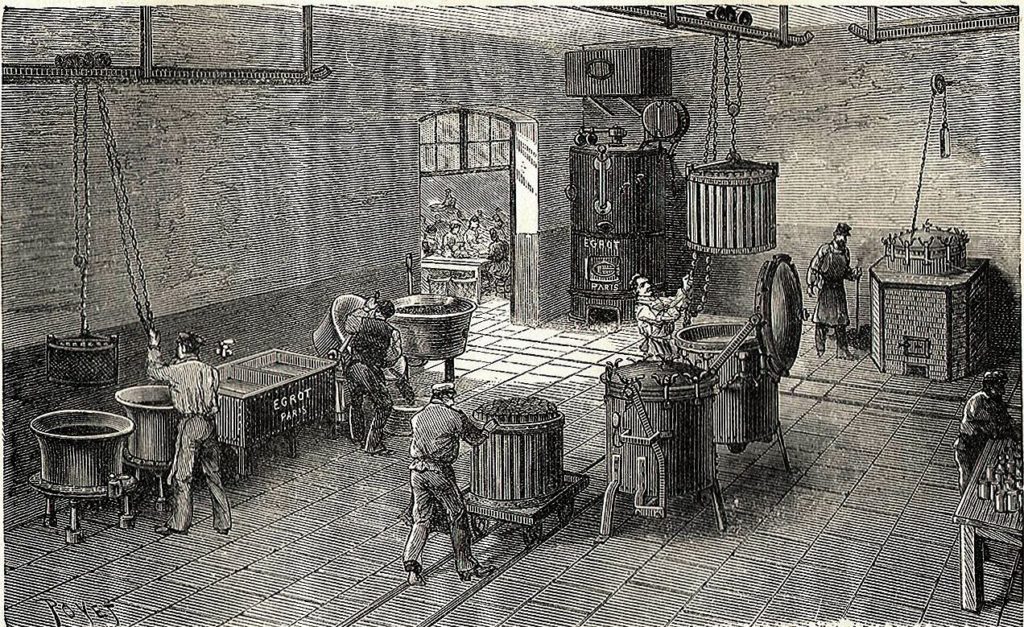 Civil War Barons: The Tycoons, Entrepreneurs, Inventors and Visionaries Who Forged Victory and Shaped a Nation, Jeffry D. Wert, DaCapo Press, 228 pp., 16 pages of b/w images, 2018, hardcover $30.00, paperback $24.00.
Civil War Barons: The Tycoons, Entrepreneurs, Inventors and Visionaries Who Forged Victory and Shaped a Nation, Jeffry D. Wert, DaCapo Press, 228 pp., 16 pages of b/w images, 2018, hardcover $30.00, paperback $24.00. Review Author: Len Riedel, Blue & Gray Education Society
Civil War Barons is a relatively short and tight book. At 209 pages, it is an easy read in any circumstance. I have known and respected Jeff Wert for some time. A former history teacher in Pennsylvania, Jeff long ago earned the respect of the Civil War community, and his frequent publications since then always are well researched and written. With more than 10 books and far more articles on his résumé, you cannot say you are well read on the war unless you have read some of his works—especially his book about James Longstreet. So it was with reasonable expectation that I opened the cover and dove in.
The literature of the Civil War has produced any number of thematic derivatives, and so this work by Jeff was a new and, as it unfolded, intriguing angle about civilian support for the war effort. I have long maintained that we cover the period before the war and after the war because people just were not there when the shooting started, and they didn’t go to a remote island after the war ended. Jeff shows in a compelling fashion how key people in a variety of innovative ways built the support infrastructure that made the Union war effort successful. The names are generally familiar: Vanderbilt, Armour, Borden, Carnegie, Deere, Squibb, Parrott, Weyerhaeuser, and many others.
 Jeff offers mini biographies on his subjects that describe how each
one came from a position of strength or failure to address the challenge
and opportunities presented by the Civil War. The stories of condensed
milk, canned meats, lumber, wagon building, artillery, rapid fire
weapons, farm instruments, and medical advances work together to help
the reader understand how each and every contribution accumulated to
provide the resources needed to win the war.
Jeff offers mini biographies on his subjects that describe how each
one came from a position of strength or failure to address the challenge
and opportunities presented by the Civil War. The stories of condensed
milk, canned meats, lumber, wagon building, artillery, rapid fire
weapons, farm instruments, and medical advances work together to help
the reader understand how each and every contribution accumulated to
provide the resources needed to win the war.Not all turn out well, and not every person was a good guy. Some were simply ruthless and made money far in excess of what they would ever need or spend in their lives. Many overextended themselves or were unable to sustain their success after the war. Others extrapolated their processes and changed to meet the demands of the following Gilded Age. Some were selfless in the face of national need, and others were successful rapscallions. What struck me was how these developments unleashed American capitalism in all of its raw power and lifechanging potential.
I am a better informed person as a result of this work. It is not mentally taxing, but, frankly, Jeff’s genius in the selection of his topic has filled a significant niche that one could live without, but if you happen upon it you will have an epiphany. I think this book is worth your time and would give it a solid 3.5 stars, maybe even 4, on a 5-star scale.
Image Source: A canning food factory (1898) | Wikipedia
Review Source: Len Riedel, Blue & Gray Education Society
No comments:
Post a Comment